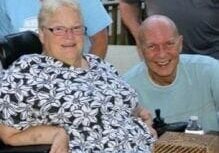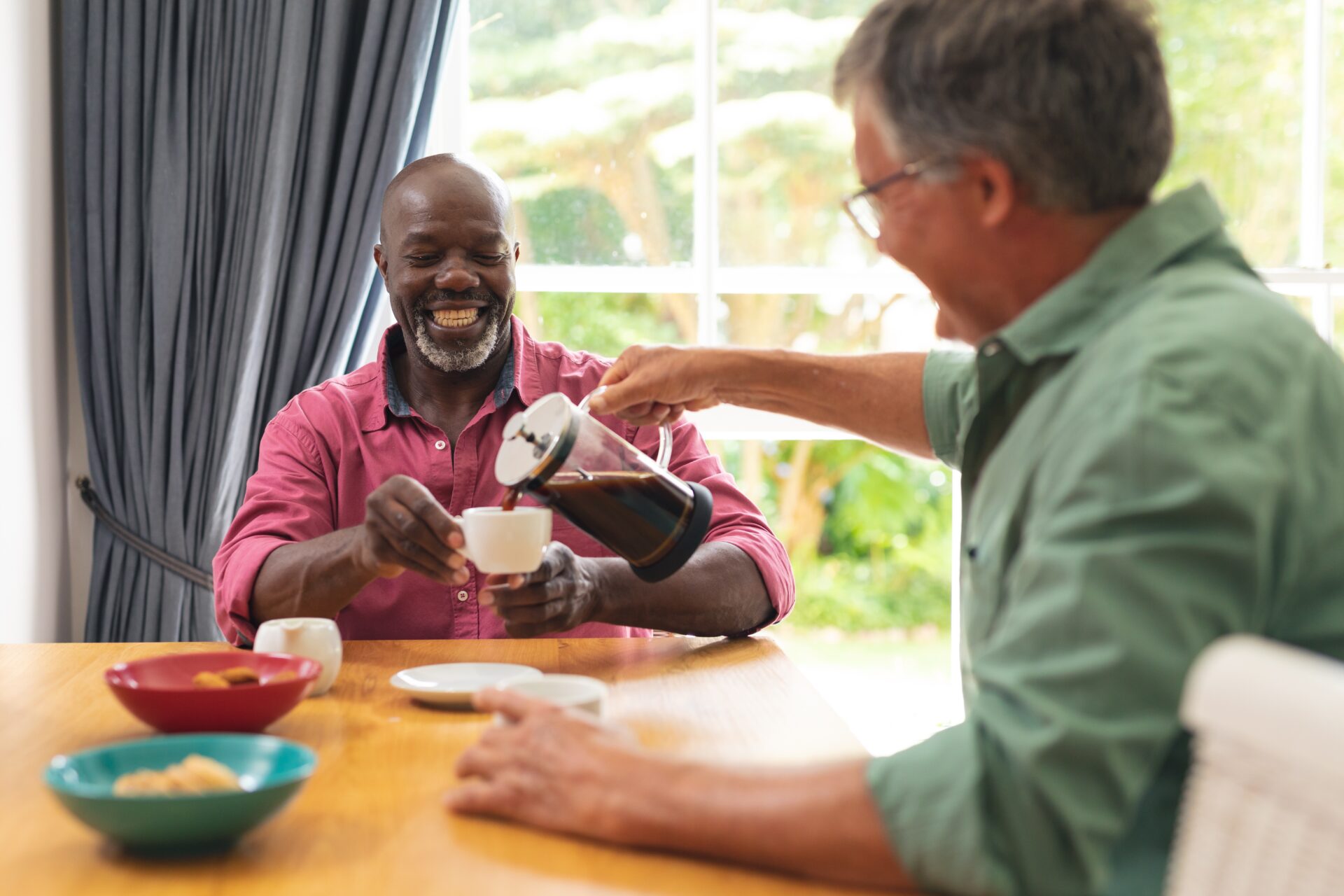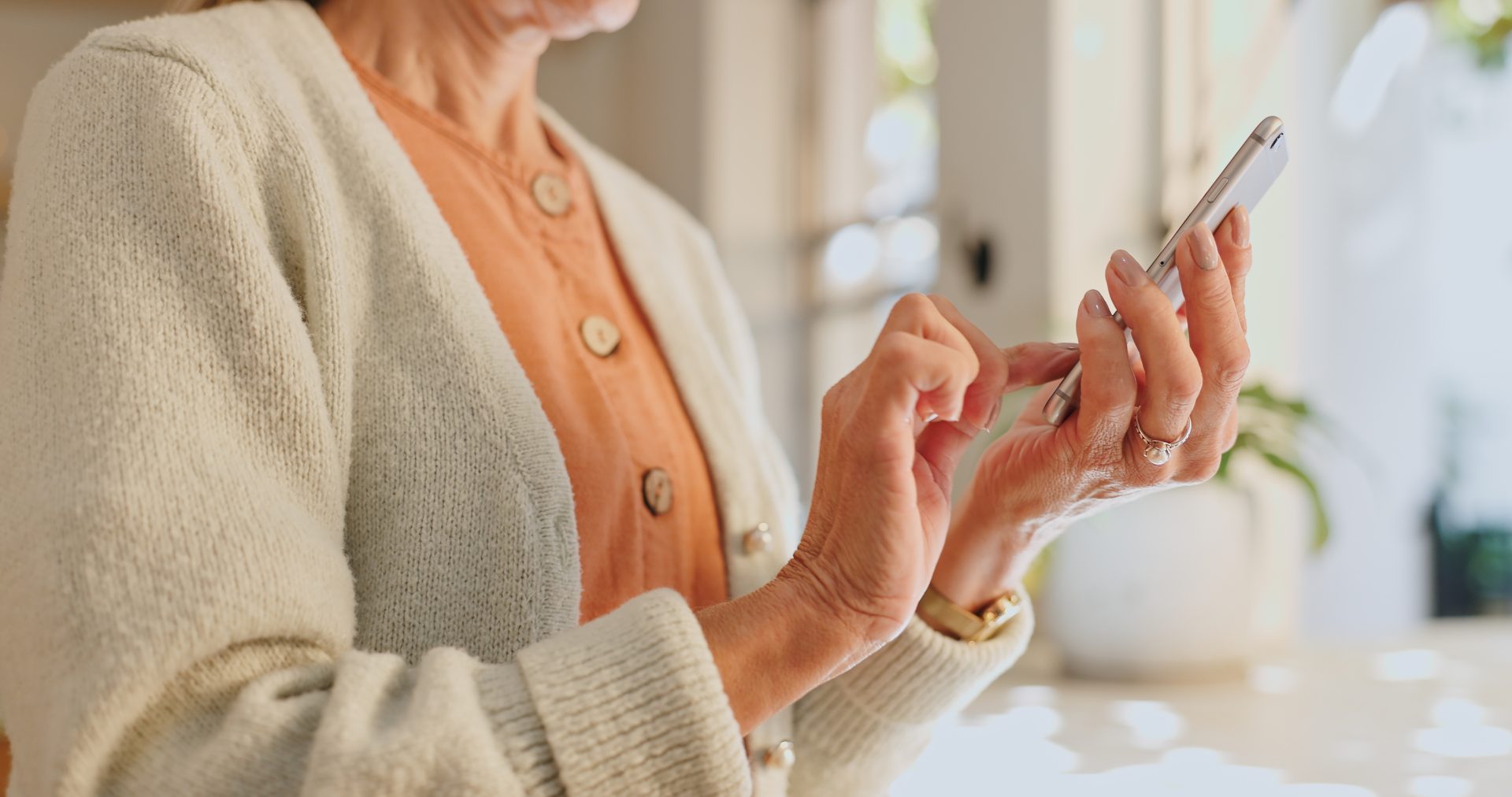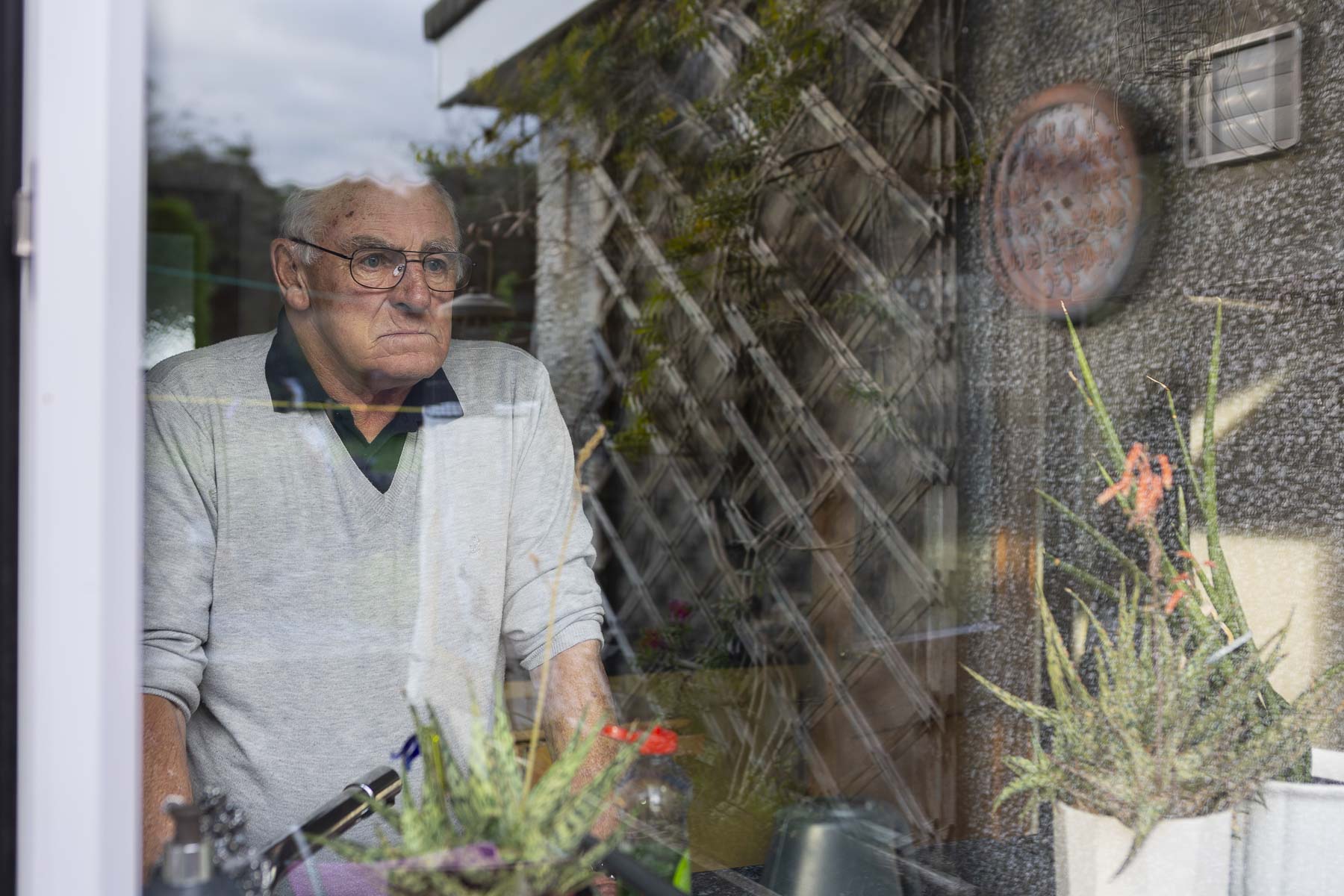Christine was born profoundly deaf. Her sight has always been poor but 3 years ago she was diagnosed with late effect polio related blindness which causes the eye muscles to become paralysed. This has left her with next to no sight; she can make out light and dark, and shadows but no more than that. “My hearing is more feelings than anything. I have worn hearing aids all my life for those – feelings – and the sense of comfort and awareness I get from them.”
At just two years old, Christine contracted Bulbar Polio (also known as Brain Stem Polio). She was left totally paralysed from the chest down, her arms recovered well enough to enable her to use crutches with the callipers she still wears today. She spent much of her childhood in hospital, adding: “I had several surgeries to try and help me, I was in plaster for most of the time, from my knees to my waist then from my hips to my chin. Sadly the surgeries failed and I was left far far worse.
“While I was in hospital I was mostly flat in bed. The worse thing was they took my hearing aids, they said they just got in the way, but gave no thought as to how lost and alone I felt. But at least they left my glasses so I could read, I had a machine on the bed tray over me that held a book and had a page turner so I could just read and read and read. This is where I learned so many words that I use to write – if not speak – today.
Christine continued: “I left hospital when I was six years old I was sent to a school for crippled children, rather than deaf children as my polio needs were greater and more obvious. Sadly, my deafness was pretty much ignored; back then deaf meant dumb and daft as well. So I taught myself to lipread. I also spent a lot of time reading and always used a dictionary to learn the meaning of words, even if I couldn’t say them. It’s a shame that I was never taught speech as a child as I’m sure it would have made my life easier. After six years I was moved to another school for handicapped and deaf children and was taught British Sigh Language (BSL), which made things so much easier for a long time.
“More recently, my hands and arms started getting weaker and very painful. I could still sign but only with, well, misery to be honest. So I was back to relying on lipreading. Four years ago I had a total disconnect of the ligaments and tendons in my arms and wrists, leaving me with a flat flaccid right arm and hand and a flaccid left arm with a clawed left hand. So I could no longer sign, but I was pain free and that is far better, believe me!
“I managed OK until I suddenly lost my usable sight, so now lip reading was out of the question too. I was scared stiff.” She continued.
Christine has recently been given two pairs of glasses from Moorfields Eye Hospital. She explained: “One pair enables me to see down to my tray. It helps my dignity to be able to have an idea of where my feeding spoon is instead of having to have yet another touch-prompt to open my mouth.
“The other pair lets me see enough to email. I do this through my huge TV; I use a maltron keyboard and mouthstick. The keyboard projects itself onto the bottom of the TV screen and a letter glows as I go past it with the stick. Now with months of practice I’m not too bad! Emailing is now my life, and what a life it can be – wow – I can talk to the world!”
“I listen by people doing Block Alphabet or Deafblind Manual onto my right hand but I cannot communicate back this way. That’s a huge concern; if I go completely blind how will I communicate? So, my friend Frank has been helping me to learn Tadoma. This involves him holding my hand to his face as he speaks so I can pick up words from the vibrations. I have been practicing relating words to the vibrations and then saying them out loud.”
Christine’s close friends and neighbours, Ann and Frank have helped her to devise another, unique communications system. Ann said: “Christine can speak numbers up to 20 quite clearly. So we have divided her daily life into a series of numbers for her to speak with a one word touch prompt using block or deafblind alphabet, by almost anyone in contact with her. For example, she has 10 items on her lunch menu, if I touch the word ‘lunch’ onto her hand, she might reply “six”. In the book under ‘lunch’ option 6 is a chicken sandwich. This is much easier for her and everyone involved than her actually trying to say it! Flowers are her favourite thing in life because of the scent. We buy her flowers every week and there are 20 flowers from which she can select, 17 is Delphiniums – imagine her trying to say that word!”
With much help Christine has learned to live as independently as she can. She gets around by electric wheelchair, which she can drive herself using her left shoulder to move her hand on the controller. She has her own flat and has memorised ways to get around it, she also uses vibrating buzzer sensors on her chair to avoid hitting doors, walls and people! She has learned to count her way from her front door to Frank and Ann’s flat nearby and back again, but is unable to go any further or outside the building by herself.
Christine had some secretarial training and spent some time working as a book keeper for the homes she lived in. But when she moved to Yorkshire, she found a far more interesting job: “I always had very good sense of smell and taste so I started doing tastings for sweet and chocolate companies at home through a food broker. It seems strange but I was able to pick the best recipe that the public would like the most. I also did tastings for Taylors Tea in Harrogate and even Smiths brewery in Tadcaster. I really enjoyed it and being paid too was really good, it was a bit like being Willie Wonka in the chocolate factory!”
Christine has learned to cope with multiple physical challenges throughout her life. She added: “The hardest daily challenge throughout my life has been the challenge of being accepted as a normal person – which I am inside. I have so rarely been given the chance to show that I have a brain and am a happy lady. All my life people have treated me as an outcast; they have presumed that I must be so miserable and hate being the way I am, that I am stupid as well as severely physically handicapped. This is really upsetting. You do not always need arms and legs or be able to see hear and speak to be a loving caring human being. I would not have chosen my life, but do not regret it being as it is.”
“Recently Ann and Frank took me to a house with a new scented garden but sadly the grounds were awful for my chair. I couldn’t get close enough to smell the scent of the flower, but worse, I was not wanted in their cafe as my chair is big and can be awkward in tight places. I may be deafblind but I can still tell when a fuss is being made over me. It was so humiliating. So I prefer my world to be what I know from my sighted memories. I am blessed with wonderful friends, I enjoy people talking to me and telling me what’s going on in the world and being part of their lives.”
Christine’s care worker, Jo, discovered Deafblind UK’s website and decided to get in touch. “We had not realised that you can have some sight and hearing to be considered deafblind – I could have joined sooner! Jo set up the first email to Deafblind UK for me and I was so pleased to get a fast and welcoming response from my local Community Engagement Officer, Saima. Everyone has been so helpful and understanding of my physical handicaps as well as my deafblindness; they are kind and helpful but never patronising. Deafblind UK has always made me feel that that really care and genuinely want to help – that means a great deal to me.”
Christine talked to Saima about the possibility of a volunteer email befriender and Saima quickly got to work in searching for someone appropriate. While they were waiting for a suitable volunteer, Saima was delighted to be a stand-in befriender for Christine.
Almost two months after Christine initially contacted Deafblind UK, we matched her with an e-befriender. Saima said: “Christine was really excited and asked me lots of questions about Nicole, her befriender. Weeks later, I had a call from Christine’s friend, Frank who told me that Christine wanted to speak to me over the phone to say thank you for arranging her e-befriender and that she has been practicing to do so for a few weeks.
“Frank gave the phone to Christine and for the first time, she spoke the words “thank you” and told me that she was wearing a green dress and was going to the hospital for a routine check up. Jo and Frank translated my response to Christine via block alphabet and tadoma. This was the first time that Christine had ever spoken to some one on the phone. Frank told me that it was really difficult for Christine to say the words that she did, but she practised continuously for the past couple of weeks.”
After the phone call, Christine said: “Remembering the words I wanted to say was not too hard but I had to remember how they felt on Franks face and lips as I went along and then put my sounds to them. Frank told me that you had understood me – even my green dress. That made me so happy.”
Christine has benefitted in many ways from Deafblind UK’s support. She said: “Being able to have email chats with new people has certainly boosted my confidence about talking about myself. Emailing is really my only source of meeting people now so having an email befriender, as well as regular contact with the Deafblind UK staff, is just great for me. Being involved with Deafblind UK has given me opportunities that I would not have had otherwise. I am grateful to have had the chance to talk about myself, to have been given a voice and to express myself in ways that were just not available to people like me a few years ago.






